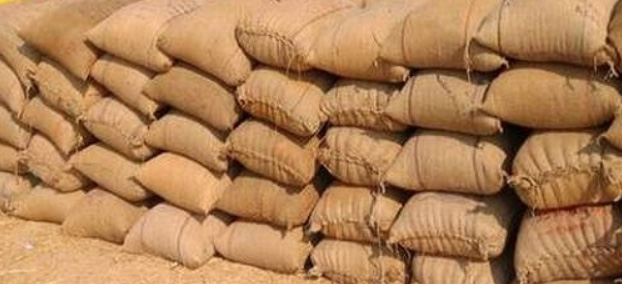Bhubaneswar: Despite the Odisha Government’s significant hike in paddy procurement price from Rs 2300 to Rs 3100 per quintal, a widespread crisis is gripping the farming community across the state.
Farmers are facing immense hardship, unable to sell their harvested paddy, even with valid tokens, due to alleged arbitrary practices by millers and a struggling procurement system.
This has led to growing dissatisfaction and widespread protests, threatening the livelihoods of thousands of agricultural families.
The government’s decision to increase the paddy price was a key election promise, initially generating a positive sentiment among farmers. However, the ground reality paints a grim picture.
The anticipated overhaul of the harvesting system, which was supposed to streamline procurement and prevent delays prevalent under the previous government, has largely failed to materialize.
Consequently, in numerous locations, paddy stocks have been languishing in mandis for months. Recent unseasonal rains have exacerbated the situation, damaging vast quantities of harvested paddy with no clear mechanism for compensation or procurement.
Adding to their woes, serious complaints persist about millers arbitrarily deducting 10 to 20 kg of paddy per quintal during procurement, further eroding farmers’ already thin margins.
Non-Payment and Mounting Losses:
A critical issue plaguing farmers is the widespread non-payment for paddy already collected by millers. With the Rabi season having concluded, millers are reportedly reluctant to clear dues, leaving farmers in a precarious financial position with no funds to prepare for the upcoming Kharif crop.
This financial distress is pushing many farmers towards desperation, forcing them to sell their produce at distress prices to traders from neighboring states, who are reportedly transporting paddy by the truckload at significantly lower rates.
Statewide Protests Escalate:
The simmering discontent has boiled over into open protests across Odisha. Farmers in Koraput and Subarnapur districts have resorted to blocking highways, demanding immediate purchase of their token-backed paddy, procurement of rain-damaged crops at the enhanced price of Rs 3100 per quintal, and prompt payment of their outstanding dues. Similar problems and protests have been reported from Binjharpur in Jajpur district, as well as from the western and southern agricultural hubs of Sambalpur, Deogarh, Bargarh, Kalahandi, and Nuapada districts, all reporting widespread irregularities in the paddy collection process. The coastal and southern districts are facing similar challenges, with millers employing delaying tactics in both harvesting and payment.
Government Response and Farmer Concerns:
While Food Supplies and Consumer Welfare Minister, Krushna Chandra Patra, has assured that 95% of the rabi paddy procurement target (18 lakh metric tonnes) is complete and that all kharif paddy will be procured by June 30, ground reports and ongoing protests suggest a disconnect. The Minister acknowledged delays in some districts due to pre-monsoon rains and issues with storage space, reassuring farmers that procurement has picked up. However, the All Odisha Rice Millers’ Association has countered, stating that their storage spaces are full with kharif paddy meant for custom milling for public distribution, shifting the onus back to the government for storage solutions.
Farmer organizations, including the prominent Navnirman Krushak Sangathan, have repeatedly drawn the attention of the administration to these pressing issues and have even planned demonstrations in the capital. However, reports indicate that the administration has, at times, not allowed farmer leaders to voice their grievances, further fueling frustration.
Allegations of Smuggling and Political Apathy:
The attractive procurement price in Odisha, including an Rs 800 per quintal input subsidy over the Centre’s MSP of Rs 2300, has ironically led to concerns of illegal paddy inflow from neighboring states with lower prices. The Odisha Government has deployed special enforcement teams and installed CCTV cameras at mandis to prevent this, and instances of seizures, such as a truck with West Bengal registration carrying paddy in Sambalpur, highlight the challenge.
Adding to the farmers’ sense of betrayal is the perceived inaction from the farmer branches of both the ruling and opposition parties. Farmers, irrespective of their political affiliations, lament that no concrete steps are being taken to resolve this critical and sensitive issue that directly impacts their survival.
The coming days will be crucial as farmers’ patience wears thin. The state government faces immense pressure to not only fulfill its procurement promises but also to address the systemic flaws and alleged irregularities that are pushing Odisha’s farmers to the brink.


